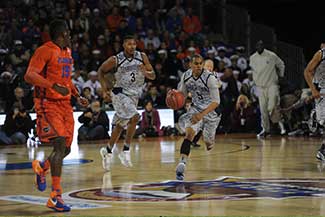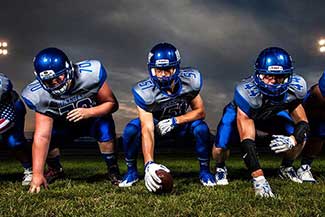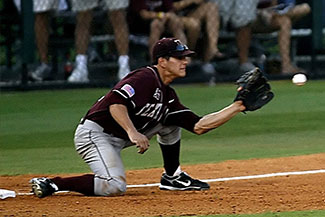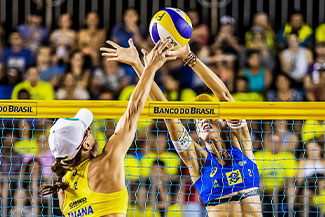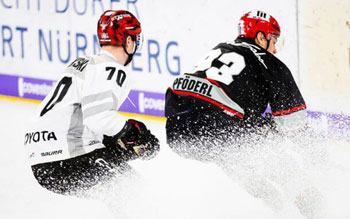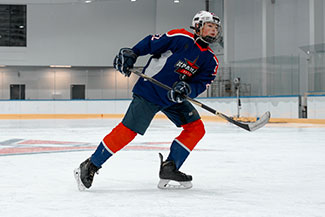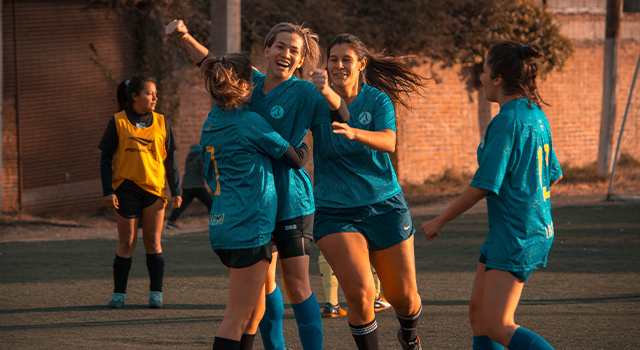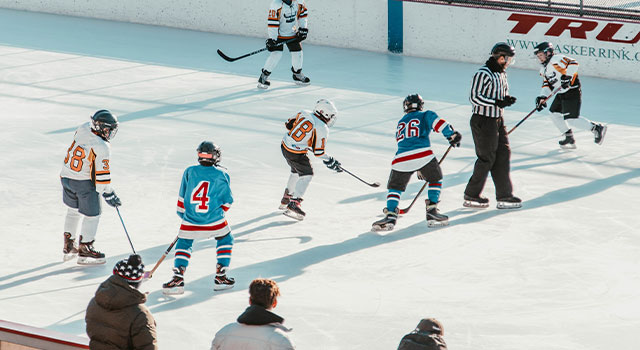
Visual Skills Needed to Excel at Golf
To be a better golfer you need to excel in three skill areas: mental, physical, and visual. Golfers often turn to private lessons to improve their swing, with efforts typically directed toward analyzing the way they move and enhancing their confidence. Unfortunately, coaches often overlook the important role visual skills play in hitting a golf ball.
Why Are Visual Skills Important In Golf?
Golf is a highly visual sport. Your visual skills influence every element of the game — from putting to reading the greens and estimating distances.
The visual skills needed for golf include eye focusing, eye teaming, sensory-motor coordination, peripheral awareness, and contrast sensitivity, all of which will be explained below. Vision training can fine-tune all of these skills, enabling a golfer to achieve consistently reliable results on the golf course.
Whether you’re a pro or an amateur, improved visual skills can make your next trip to the golf course a more rewarding and enjoyable experience.
What Is Sports Vision Training?
Sports Vision Training, a form of vision therapy, entails individually prescribed and monitored exercises that develop specific visual skills and processing in athletes, no matter their age. These exercises retrain the brain to better interact with the eyes, which leads to improved performance on the golf course.
This training is made up of weekly in-office appointments and at-home exercises. The program typically lasts from several weeks to several months. Sports vision training involves close monitoring and follow-up appointments to ensure steady improvements in the patient’s visual functions.
If you want to improve your visual abilities and gain a competitive advantage in golf, contact Dr. Matthew Anderson today.
Which Vision Skills Do I Need for Golf?
Below we describe some of the most important visual skills required to become a great golfer.
Eye Focusing (Accommodation)
This is the ability to quickly and accurately adjust the eyes’ focus from near to far. This is important in golf — particularly for putting — as you consistently shift their focus from the ball to the cup and back.
Eye Teaming
Eye teaming (or binocular vision) is the eyes’ ability to work together as a team. Just because both eyes appear aligned, it doesn’t mean they are working together. This is an important skill to master, as it allows you to accurately estimate the field and read the greens.
Depth Perception
This refers to the ability to identify the exact location and distance of an object or person.
Depth perception is crucial in helping you correctly estimate the distance between the ball and the hole, and the speed at which you need to hit the ball. So if you’re poorly estimating the distance to your target, or if you either hit the ball too short, too long or too much to the right or left, poor depth perception may be to blame.
Eye-Hand/Foot/Body Coordination
Golfers need to accurately identify and interpret visual input and successfully coordinate hand, foot and associated body movements. Once the eyes see the ball, they communicate its location to the brain, leading the arms and hands to get into the right position to swing the club. Any faulty communication between the brain and eyes can adversely affect your game.
Focusing
Golfers need to be able to accurately focus on a target, quickly and accurately. The ability to properly focus on the ball and the target is critical for making the right contact between the clubhead and the ball, whether hitting the sweet spot or stroking a smoother putt. Moreover, the ability to stay focused helps maintain peak performance levels, even during adverse weather conditions.
Peripheral Awareness
This is the part of your vision that lies beyond your direct line of sight — what you see from the edge of your visual field. This is important in golf, as you need to be aware of the ball while simultaneously knowing where you want to direct the ball with your club. This skill aids with reading the greens and assessing the contours of each hole, while also helping you accurately align for your full swing.
Contrast Sensitivity
Contrast sensitivity is the visual ability to accurately perceive an object against a background. Golfers with poor contrast sensitivity find it difficult to read the greens and properly assess the direction of the grain, and whether the green is slow, fast, wet, or dry.
Visualization
Visual imagery techniques are frequently used to help develop consistently top performance. If you can clearly and frequently imagine yourself performing a proper swing and visualize the path you want the ball to take, you will end up performing the swing as seen in your mind’s eye. Furthermore, strong visualization skills develop your concentration and focusing skills.
If you are a golfer interested in improving your game, contact Grand Developmental Vision Institute for a sports vision assessment. Based on its findings, Dr. Matthew Anderson will prescribe a customized vision training program to help you optimize, correct, and enhance your visual skills so you can become the golfer you know you can be!
Our practice serves patients from Winnipeg, Selkirk, Portage La Prairie, and Brandon, Manitoba and surrounding communities.
